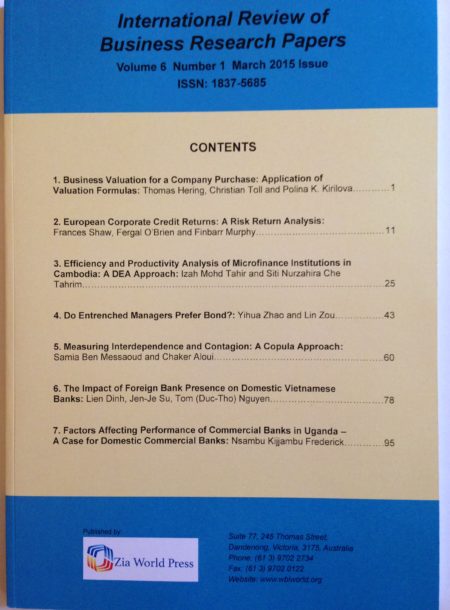International Review of Business Research Papers
Vol. 12. No. 2., September 2016, Pages: 183 – 203
Energy Consumption, Economic Growth & Environmental Quality: A Causal Relationship Revisited for the Bangladesh Economy
Sakib B. Amin, A M Muhib Morshed and Aroni K. Porna
Amin et al. (2011) examine the causal relationship among energy use, CO2 emissions and economic growth in Bangladesh and reveal that energy consumption leads to economic growth and no causal relationship exists between economic growth and CO2 emissions in Bangladesh, which implies that economic growth can be achieved without deteriorating the environmental quality. Since there is a debate regarding the fact that whether environmental degradation is measured only by considering CO2 emissions, the objective of the present study is to expand the aforementioned study for robustness check, by considering two more environmental indicators and an extended time period of 1972-2011 and hence, address the question: Can a sustainable economic growth persist without degrading the environment? We consider a multivariate model and perform the Augmented Dickey Fuller (ADF) and Phillips Perron (PP) tests to check if the variables are stationary. Next, we apply the Johansen cointegration method followed by the Granger causality test to check for robustness of the relationship among the variables. Our results confirm that Bangladesh cannot achieve economic growth without hindering the environmental quality as there is a unidirectional causality running from CO2 emissions to economic growth. The results also point out that considering only one environmental indicator might lead to a misleading conclusion regarding the economic growth and environmental quality nexus.
DOI :
https://doi.org/10.21102/irbrp.2016.09.122.12

